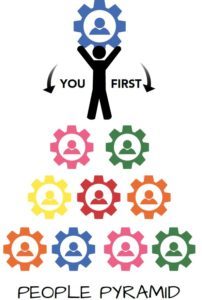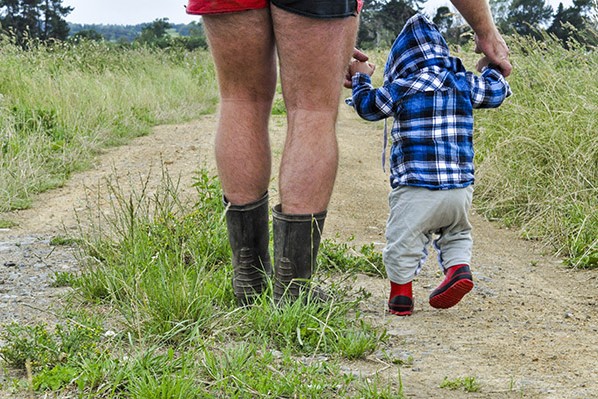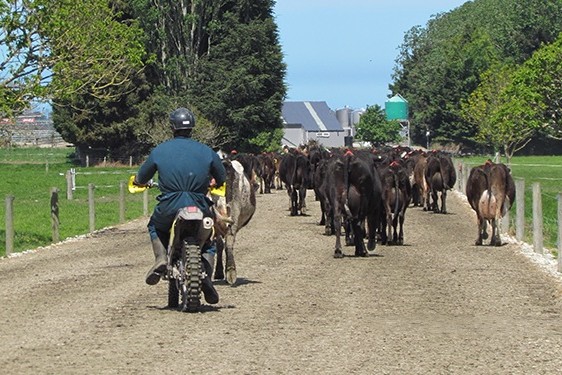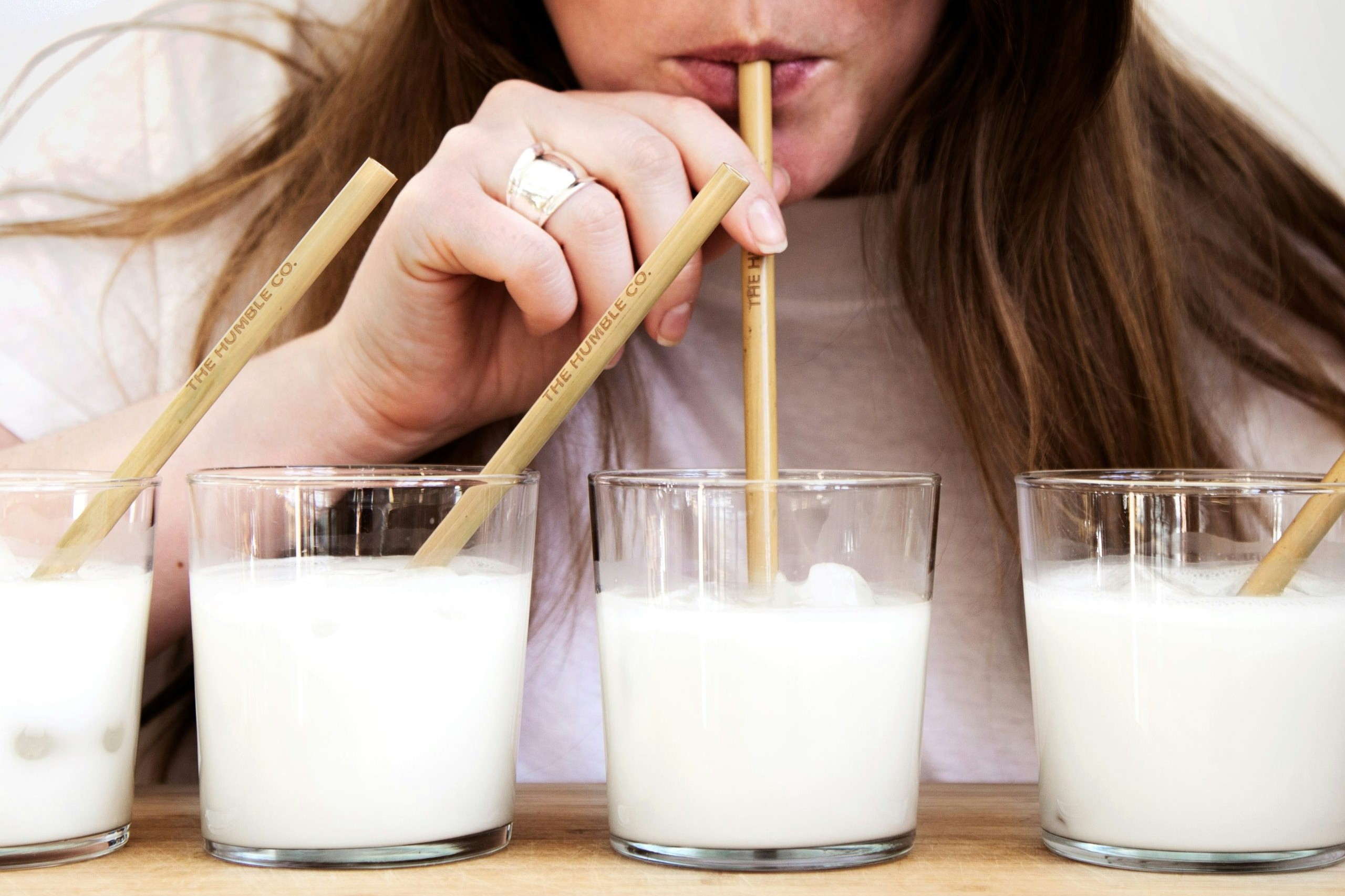Sheryl Haitana
It is understandable farming and the rural life can be hard on peoples’ mental health and wellbeing, clinical psychologist Karen Nimmo says.
The uncertainties, isolation, high debt levels, environmental expectations, along with the typical stress and strain of running a business, are all realities of farming.
 “We need a fair swag of resilience to survive it (farming), let along thrive in it,” she says.
“We need a fair swag of resilience to survive it (farming), let along thrive in it,” she says.
The statistics back up how difficult farming can be on mental health. Farming, along with forestry and construction, has the highest rates of depression and suicide in New Zealand. It’s also not a surprise or a coincidence that those are male-dominated industries, she says.
Often men haven’t had the experience about talking about their problems or emotions and in difficult times it can be immensely stressful.
Karen spoke at the SMASH (Smaller Milk and Supply Herds) conference in May on building resilience and keeping life light. There are three types of stress; shock, the
slow burner, (coping with problems over a long period of time), and the super combo
– when a slow burner turns into a shock. For example, a relationship that is going downhill and a person walks out.
“That can really throw people into turmoil. I’m always looking out for the perfect storm – when stress comes at you from all angles. It’s very common for people to hold on to stress for a very long time – and still be able to work at a high rate without the cracks showing.
‘Relationships come and go, but there is one relationship we can guarantee to go the distance with – one person that’s not going to back out on you. That’s yourself. That’s the person you’re stuck with.’
“But sometimes it takes one little thing to happen and that can tip them quite quickly into a dark place.”
Psychology is about treating mental illness, but more importantly it’s about building self-knowledge, knowing who you are and how you react so you can manage yourself in the tough times, she says.
It’s common for people to not know a lot about themselves. People know their favourite colour, but can’t answer how they handle stress or criticism or handle their emotions.
The ability to cope with all that life and farming throws at you comes back to people’s relationship with themselves and others, she says.
“As people, we all have our faults, all have stresses, problems, all trying to make lives, and we all have relationships that need taking care of.
“Relationships come and go, but there is one relationship we can guarantee to go the distance with – one person that’s not going to back out on you. That’s yourself. That’s the person you’re stuck with.”
No matter what your self-esteem is the good news is you can always improve it and start to feel better about yourself, she says.
Healthy self-esteem is when you feel equally good about yourself across all different aspects of your life – your work, relationships, money, health, etc.
An unhealthy esteem is when you have too much weighting of your life or your identity wrapped up in one area of your life. For example if a farmer’s identity is only based on the farm and their work – if that topples over they can topple over.
PEOPLE PYRAMID
A key to good mental health and wellbeing is looking after the relationships in your life. Karen recommends drawing a pyramid with yourself at the top and then the most important people in your life underneath. For example, your partner, children, your parents, or your best friend.
 The only rule is to put yourself at the top of the pyramid, and then you rank the people in your world underneath.
The only rule is to put yourself at the top of the pyramid, and then you rank the people in your world underneath.
“The idea is if you don’t look after yourself, then everything else in your life, your relationships, suffer.”
Looking after the key relationships in your life should always be a priority if you want life to go smoothly, she says.
“It’s no coincidence I think that when our lives are going really well, relationships are generally going well.”
When life isn’t going so well it’s often the relationships that are causing the difficulty.
“When you have problems with relationships with people high on your pyramid that’s the time to take notice.”
When you get asked to do things by people, think about whether it will disrupt any of the relationships that come above them – including the relationship with yourself and your wellbeing, Karen says.
This pyramid process helps you keep relationships in perspective and figure out whether distant relationships (such as staff, colleagues or someone in the community) are having a negative impact on your life.
A lot of the time the strain and stress in people’s lives is coming from people that don’t actually matter, Karen says.
“A lot of the time what you find is when you’re having some stress it will come from people that don’t even make your pyramid.”
AM I FUN TO LIVE WITH?
Karen’s favourite mantra is ‘Am I fun to live with?’. Life is difficult and everyone will have challenges and go through difficult times in life, so it’s important to keep it light when you can, she says.
“No matter how cool you are, how above it you are – it is coming for you. There is always something.”
Life is made up of the day-to-day events that happen around the kitchen bench and people should try and have fun and enjoy those everyday moments.
It’s important to keep an eye on what you’re like as a partner, as a parent, or as a workmate, and the role you play in that relationship, she says.
“To have some fun in your domestic relationship, to have a laugh, there is nothing better – to keep things light when you can.
“I think we should all have this taped to our fridge. We spend a lot of time thinking about ourselves and how we feel about things. This helps you think beyond yourself.”





